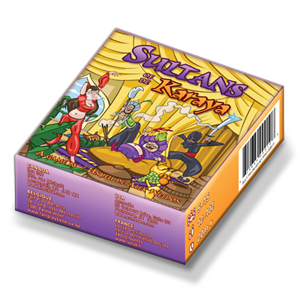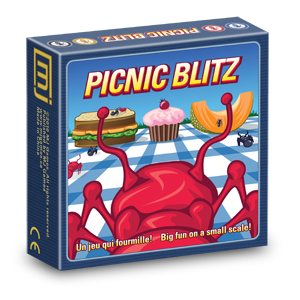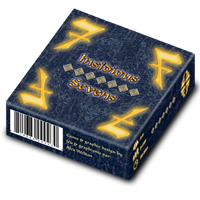My third game, Sultans of Karaya is a game of intrigue, deception and memory for large groups. It works best, I’ve found, with between 8 and 11, though it can be played with as few as 5 and as many as 15.
Although the game bears superficial resemblance to games such as Werewolves of Miller’s Hollow or The Resistance, it differs in three important ways.
Firstly, it breaks away from the “informed minority vs. uninformed majority” paradigm by making both teams approximately equal in power, and equally uninformed at the start of a round.
Secondly, and more importantly, a given player is not stuck with a single character (and alignment) for an entire round. Rather, cards are exchanged, and thus the objective of the game is not so much to identify one’s teammates and cooperate with them as it is to collect information for one’s own benefit and then connive, maneuver, and share information selectively in order to end up on the winning team at the end of the round.
Finally, the game is played in a series of rounds, with players accumulating points for siding with the winning team of each round, so there is one final winner – the one with the most points!


